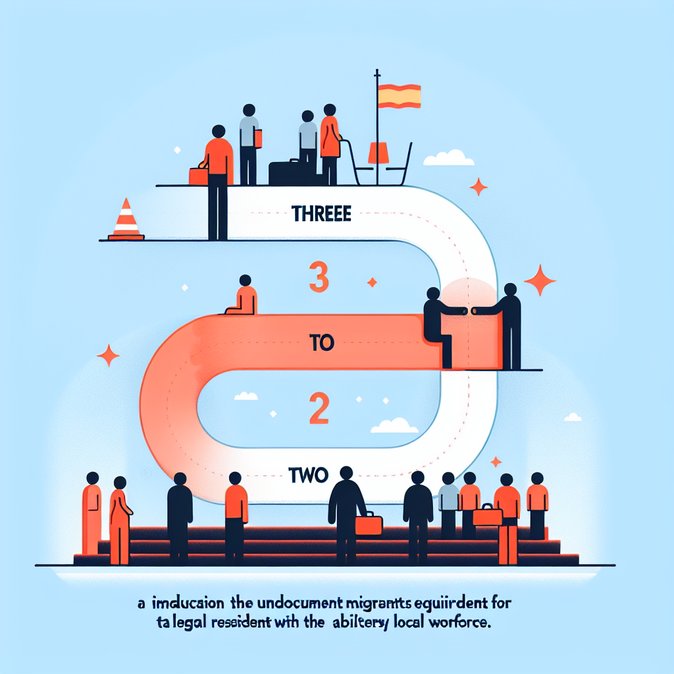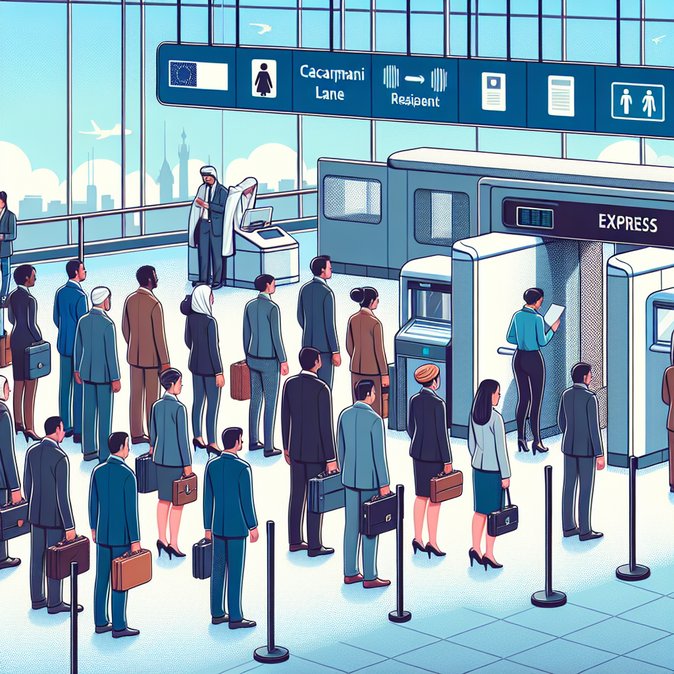
Spain has quietly rewritten the rules on one of its most-used regularisation pathways. Under a reform published in the Official State Gazette on 19 November and now in force, undocumented migrants need to prove just two years of continuous presence in Spain—down from three—to qualify for Arraigo Social or Arraigo Sociolaboral permits. The change applies to all applications lodged from 20 November onward and could benefit tens of thousands of workers who entered before November 2023.
Arraigo permits convert irregular stay into full legal residence when an applicant demonstrates “roots” in Spain via a job offer, family ties or integration certificate. By shaving a year off the residence clock, the government hopes to ease chronic labour shortages in agriculture, construction and elder-care, sectors where unregistered work remains widespread. NGOs say the shorter timeline aligns with reality: many migrants already pay taxes via false IDs but cannot sign contracts, leaving them vulnerable to exploitation.
![Spain Cuts Arraigo Residency Requirement to Two Years]()
For employers, the reform is immediate good news. Companies can now recruit workers who arrived as recently as late 2023 without navigating Spain’s restrictive hiring-from-abroad quota. Mobility teams should review compliance strategies: offering a six-month renewable contract that meets minimum wage thresholds is often enough to secure an Arraigo approval.
Legal practitioners note several nuances. Proof of two years’ presence can include municipal padrón registration, remittance receipts or NGO attestations—documents that should be collated early. Authorities may still request a criminal-record certificate from the country of origin, but applicants no longer need to show a full labour-integration report if they present a firm job offer exceeding 30 hours a week. Processing remains the remit of provincial extranjería offices, many of which already face severe appointment backlogs.
In the medium term, the reform could dovetail with Spain’s demographic strategy to offset population ageing. The Ministry of Inclusion estimates the tweak will regularise 40,000–60,000 people annually. Critics within the opposition Partido Popular argue the move rewards illegal entry and could encourage new arrivals. Business chambers counter that bringing shadow-economy workers onto payrolls will boost social-security revenues and level the competitive playing field.
Arraigo permits convert irregular stay into full legal residence when an applicant demonstrates “roots” in Spain via a job offer, family ties or integration certificate. By shaving a year off the residence clock, the government hopes to ease chronic labour shortages in agriculture, construction and elder-care, sectors where unregistered work remains widespread. NGOs say the shorter timeline aligns with reality: many migrants already pay taxes via false IDs but cannot sign contracts, leaving them vulnerable to exploitation.

For employers, the reform is immediate good news. Companies can now recruit workers who arrived as recently as late 2023 without navigating Spain’s restrictive hiring-from-abroad quota. Mobility teams should review compliance strategies: offering a six-month renewable contract that meets minimum wage thresholds is often enough to secure an Arraigo approval.
Legal practitioners note several nuances. Proof of two years’ presence can include municipal padrón registration, remittance receipts or NGO attestations—documents that should be collated early. Authorities may still request a criminal-record certificate from the country of origin, but applicants no longer need to show a full labour-integration report if they present a firm job offer exceeding 30 hours a week. Processing remains the remit of provincial extranjería offices, many of which already face severe appointment backlogs.
In the medium term, the reform could dovetail with Spain’s demographic strategy to offset population ageing. The Ministry of Inclusion estimates the tweak will regularise 40,000–60,000 people annually. Critics within the opposition Partido Popular argue the move rewards illegal entry and could encourage new arrivals. Business chambers counter that bringing shadow-economy workers onto payrolls will boost social-security revenues and level the competitive playing field.


